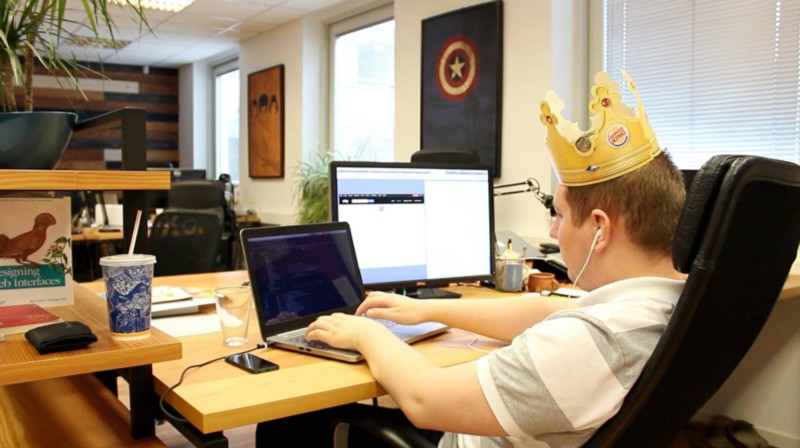Did you arrive to work late? Did you leave early? Did you go out to get something official done during business hours? Your boss is sure to have given you the evil eye, but even if s/he did not realise, your absence has evidently raised your co-workers’ attention! They’re in, you’re not, you all get paid, so how is it?
Integral Vision
Did you arrive at work late? Did you leave early? Did you go out to get something official done during business hours? Your boss is sure to have given you the evil eye, but even if s/he did not realize, your absence has raised your co-workers’ attention! They’re in, you’re not, you all get paid, so how is it?

My parents and teachers educated me to work much with endurance so that my labor will be acclaimed. Doing it spectacularly and making my eminence clear for everyone to ensure appreciation. They have planted the myth of the striver in me.
Result = Time + Presence
There was a time in my life when I worked as an entrepreneur. Officeless. For years before that, I had been doing my job the traditional way, at a workplace. Throughout those years, I had forgotten what it felt like to be free. I was in from 9 a.m. to 6 p.m., at which point I usually packed up and went home. My boss did even comment on the keyboard sliding out from under my hands at six. He did not like my not working overtime unless necessary. Sitting all day long there made me revalue the evening hours I wished to spend in my Darling’s company. I did not leave due to lack of affection for what I did, but to keep up my life beyond the office. Then I left the firm and went freelance. My first thing in the morning was to go to a spa and chill out in hot water till lunchtime. Subsequently, I worked at home until evening, and then the next day I went to the cinema, being in the mood for it. I remember sitting on the underground, watching the impassive faces going to work. I worked when and where I wanted. I was free! Free and inspired. I was doing the same as before, but no one would tell me what and when to do, and it filled me with infinite happiness.
Why Work Sucks
Let me recommend you a proactive book covering this topic: Why Work Sucks. Briefly, it elaborates on giving up at last our system of accounting for labor based on time and space. It doesn’t matter how much you work and where what counts is the quantity and quality of the value you produce for the firm.
Eventually, this led us to what would become the simplest definition of a Result-Only Work Environment: Each person is free to do whatever they want, whenever they want, as long as the work gets done (Ressler and Thompson 66).
ROWE and Scrum
For everyone to do their job, they must see clearly what their tasks are, and how much work they have to complete in a given time frame. In reality, we can operate according to ROWE (results-only work environment) if we can decompose the tasks efficiently, and measure achievement.
It is lucky if the performance indicator is not a value defined in hours, but an arbitrary scale marking the extent of the tasks in proportion to each other. ‘Story’ as recommended in Scrum methodology is the perfect decompositional method, and ‘Storypoint’ is an excellent measure. In my opinion, the more efficiently we use Scrum throughout our developments, the more in-depth the ROWE approach can strike root.
Performance vs. Attitude
An exercise from a workshop by Marshall Goldsmith illustrates it all very well. He asked the participants to form pairs and act out the roles of a successful sales representative and the executive manager in the following situational game:
The sales representative is one of the best achievers at your company, profoundly affecting its success rate on the market. Let me invite my dear reader to enact the role of the executive in this exercise!
Two months before a new product launch, you decide to organize a weekly sales meeting to talk through, delegate the tasks, and to have an overview of the operative and administrative matters. The colleague mentioned above is regularly late from these meetings and is quite apparently preoccupied with her/his current sales (being caught-up in striking a successful large scale bargain). It is a thorn in other colleagues’ sides, and after a few occasions, you decide to persuade the sales rep to come round. What do you say to this person?
Works cited:
Ressler, Cali, and Jody Thompson. Why Work Sucks and How to Fix It. New York: Penguin, 2008.
Special thanks to Mihály Nagy for calling my attention to the book.
Share with your friends!

